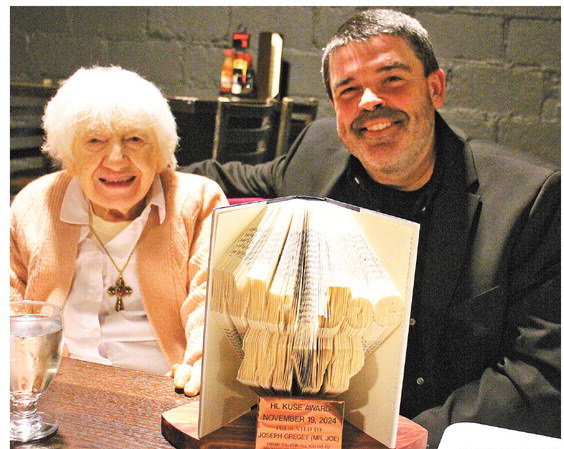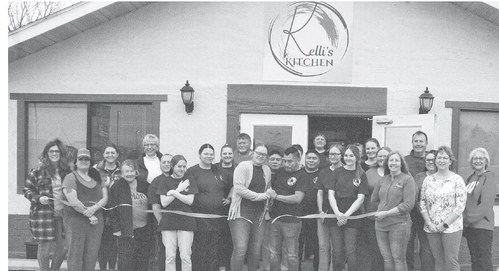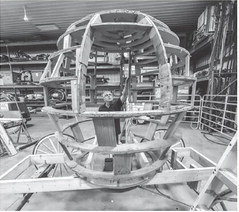City council sets budgets, looks at future projects for utility budgets
The Medford city council on Tuesday approved the budgets for the city’s enterprise and special revenue accounts.
Council members had initially reviewed the budgets during a session held on August 12. These budgets are areas of city operations that bring in non-tax revenue to support their budgets such as the electric and water utilities.
Room Tax Fund Budget — The city is projecting to collect about $45,000 in room tax revenue in the coming year. This is up from the $35,000 budgeted for last year but is still projected to be below the $59,993 collected in 2023. Funds are collected from a special sales tax on motel rooms rented in the city. Under changes approved earlier this summer, the city will retain 14% of the room tax revenue ($6,300) for city operations. The Medford Area Development Foundation will receive 84% ($37,800) for the room tax commission to give out in tourism grants to local organizations. The Music in the Park series will receive 2% ($900). City Coordinator Joe Harris noted that the fund for the music in the park is non-lapsing which means that if more revenue comes in it will remain in the account and allow the allocation in future years to be higher.
Landfill Budget — The city continues to maintain a closed landfill located north of the city on Pleasant Ave. The city budgets $7,500 per year from the refuse/recycling fund to cover ongoing groundwater monitoring as required by the Department of Natural Resources as well as maintenance of the grounds. The city uses the property for the disposal of leaves collected in the city each fall as well as for brush removed by the electric utility following storms. Board member Laura Holmes asked if the city would ever be able to close the facility. Harris said he does not foresee that happening and if the city were to sell it at some point, they would still have ongoing liability for the materials buried there.
Community Development Authority Board — The CDA was developed as a financing tool for Tax Incremental District No. 12 and 13 and served as a passthrough where the city leased the infrastructure in the TIDs to the CDA to pay for the bond payments. With the closure of TID 12, activity in the CDA has scaled back dramatically with the expenditures dropping from $772,927 in 2022 to a projected expense of $8,550 budgeted for 2025. This comes from a transfer from general fund related to TID 13 (located along Hwy 13 to the north of Hwy 64).
Water Utility Enterprise Fund — The water utility is projected to have overall expenditures of $1,053,720 in 2025 with revenues from utility customers of $1,062,300 leaving a surplus of $8,580. As a regulated utility, the water utility must maintain a positive balance. The utility continues to pay down bond debt with payment $105,186 in 2025, the bond is scheduled to be paid off in 2031. As with other utility accounts, the depreciation budget line item is comparatively large at $430,000, meaning the actual cash for the utility is $438,850. Of that, a portion is for debt service, $100,000 will go toward a planned Musky Lane water main reconstruction; $26,000 will go toward meter replacements, $180,000 will go toward drilling a water water main on Hwy 64 East. The utility is also planning on spending $15,000 for back up generators to operate Well 8 and 10 in the case of power outage.
Refuse/Recycling Enterprise Fund — The refuse/recycling budget sees money generated from monthly fees paid by residents and other customers. The bulk of the fees collected, totaling $370,000 goes to cover the refuse collection contract of $245,000 a year. There are additional expenses related to recycling with the largest being $55,000 a year spent on crushing waste concrete. The city operates a crusher to recycle concrete which is then used for road base material in the city. Money is set aside for equipment purchases, rentals, and to go for a portion of the capital outlay for the city’s end loader.
Wastewater Utility Enterprise Fund — Total expenditures for the city’s wastewater plant for the coming year are projected to be $2,099,745. This is up about $153,000 from the prior year. Wastewater superintendent Al Zenner explained that the increase in expenditures is offset by budgeted increases in revenue from outside hauled in waste, treatment of high strength waste, and lab fees. The city has been aggressive is increasing the amount of trucked in waste from other areas and has taken over water testing for the county for rural property owners as well as testing for the village of Rib Lake’s sewer plant. While the budget shows an operating loss in the sewer plant, depreciation is a sizable budget line item with $1,143,000 budgeted for depreciation. The city will use this money, along with $2 million from reserves and $2 million from long-term debt to spend $4.2 million on a headworks construction project with construction and engineering. The utility will also put $25,000 for the purchase of a snow pusher for the skid steer. With construction at the plant, there are areas where using a truck with a blade for snow removal are no longer possible. Vehicle replacement is budgeted to have $5,000 set aside and $10,000 will be set aside for replacement of the Jetter truck.
Electric Utility Enterprise Fund — The electric utility is also a regulated utility. It is the city’s largest enterprise fund with projected revenues of $10,338,053 and budgeted expenses of $10,161,900 with a net of $176,153. As a regulated utility, the electric utility is required to show a positive budget. The largest cost for the utility is the purchase of power, which accounts for $8.6 million in the current budget. As with other utilities depreciation is a major line item of $513,000. Combined with the utility’s net income, customer contributions and salvage the utility will have $716,653 in cash. This will be used for substation maintenance ($35,000), plant additions ($50,000), removals ($30,000), the second year of the digger derrick replacement ($174,037), and replacement of a meter truck ($50,000). The remainder will be held in reserve in the utility budget.




